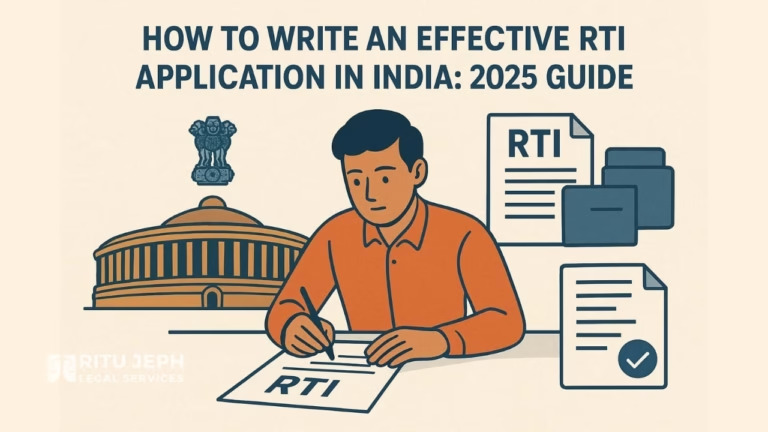Book Appointment Now

Copyright Protection Treaties: The Berne Convention and TRIPS Agreement
Explore how the Berne Convention and TRIPS Agreement, key copyright protection treaties, safeguard creators’ rights in India and globally. Learn their history, enforcement, and 2025 updates in this detailed guide
In today’s digital world, where a song from India can become a global hit overnight, protecting creative works like books, music, and movies is more important than ever. Two major international agreements, the Berne Convention and the TRIPS Agreement, help ensure that creators’ rights are respected worldwide. These copyright protection treaties are essential for artists, writers, and filmmakers to safeguard their work, no matter where it’s used. These treaties continue to shape how intellectual property rights are protected globally. Let’s explore what these treaties are, how they work, their history with India (including during British regola), their enforceability in Indian courts, and the latest updates from the TRIPS Council meeting in November 2024.
What Is the Berne Convention?
The Berne Convention began on September 9, 1886, in Bern, Switzerland, with 10 European countries signing it. Today, it has 181 member countries, including India, the US, and the UK, according to the World Intellectual Property Organization (WIPO). This treaty is one of the oldest copyright protection treaties, designed to protect creative works like books, songs, paintings, and films across borders.

The Berne Convention has key rules. First, it ensures “national treatment“—if you create something in one member country, all other member countries must protect your work as if it were created there. Second, protection is automatic; you don’t need to register or fill out forms. Third, the protection lasts for at least 50 years after the creator’s death. For example, if an Indian author writes a book, it’s automatically protected in countries like Japan or Germany without extra steps, thanks to these copyright protection treaties.
ALSO READ: Understanding Image Copyright Infringement in India and Your Rights
The treaty has been updated several times, with the last major revision in 1971 and a minor amendment in 1979. These updates added clarity and allowed developing countries like India to use copyrighted works for education under specific conditions. However, the Berne Convention faces challenges in the digital age, such as online piracy, which we’ll explore later.
India and the Berne Convention: From British Rule to Today
Since the Berne Convention was signed in 1886, during British rule in India (1858–1947), does it still apply today? Yes, it does. Britain, a founding member, extended the treaty to its colonies, including India. India officially joined the Berne Convention on April 1, 1928, while still under British rule, through British governance. After independence in 1947, India chose to continue its membership. As of today, India remains a member, so the Berne Convention still applies. This ensures that Indian creators’ works are protected globally, and foreign works are protected in India.
What Is the TRIPS Agreement?
The TRIPS Agreement (Trade-Related Aspects of Intellectual Property Rights) started on January 1, 1995, under the World Trade Organization (WTO). As of May 2025, the WTO has 164 members, including India. While the Berne Convention focuses only on copyright, TRIPS covers all types of intellectual property, like patents and trademarks, but its copyright rules are vital.
TRIPS builds on the Berne Convention by adding detailed rules. It requires countries to give foreign creators the same protection as their own citizens and sets a minimum protection period of 50 years. It also covers modern issues like computer programs and movie rentals, which the Berne Convention didn’t address. TRIPS has stronger enforcement measures, requiring countries to have laws to stop copying and punish violators. It also includes a “most-favored-nation” rule: if a country gives extra benefits to one country’s creators, it must offer the same to all members. For example, if India makes a special copyright deal with Canada, it must extend that deal to Brazil or South Africa, ensuring fairness in copyright protection treaties.
ALSO READ: Legal Challenges of Non-Disclosure Agreements and Whistleblowing in AI and Corporate Governance
India joined the WTO in 1995 as an independent nation, long after British rule ended in 1947, and became a party to TRIPS at its inception, signing it on its own terms.
How Do These Treaties Help Cross-Border Enforcement?
Both copyright protection treaties are crucial for protecting creators globally. If an Indian musician’s song is copied in the UK, the Berne Convention ensures the musician can seek protection under UK laws as if they were a UK citizen. TRIPS ensures that a US filmmaker’s movie copied in India can be protected under Indian laws. TRIPS goes further by requiring enforcement systems like court cases, fines, or border checks to stop fake goods. For instance, if pirated copies of a Bollywood movie are sold abroad, TRIPS rules can help stop those copies at the border.
Are These Treaties Enforceable in India Today?
Yes, both the Berne Convention and TRIPS are enforceable in India, but not directly. International treaties must be incorporated into India’s national laws to be enforceable in courts. India has done this through the Copyright Act of 1957, amended several times (most recently in 2012), to align with these copyright protection treaties. The Act ensures automatic protection, a minimum 50 -year term, and equal treatment for foreign creators, meeting Berne and TRIPS requirements. For example, Section 40 of the Act protects works from other member countries, and Section 14 defines copyright holders’ rights.
Indian courts enforce these laws. In a 2019 case, Entertainment Network (India) Ltd. v. Super Cassette Industries Ltd., the Supreme Court of India used principles aligned with the Berne Convention to settle a music licensing dispute. In 2023, the Delhi High Court upheld a French filmmaker’s rights when their documentary was illegally streamed in India, citing India’s obligations under these copyright protection treaties.
However, enforcement faces challenges. Online piracy in India is a major issue, with pirated movies and music widely available. The Copyright Act allows penalties—fines up to ₹2 lakh and imprisonment up to 3 years—but court delays and limited resources to tackle digital piracy can weaken enforcement. While the treaties set the rules, their effectiveness depends on India’s legal system.
Latest Updates from the TRIPS Council Meeting (November 2024)
The most recent TRIPS Council meeting, held on November 7-8, 2024, as reported on the WTO website, brought new discussions that impact these copyright protection treaties. WTO members reviewed progress on intellectual property issues, including copyright. A key focus was the extension of a waiver allowing least-developed countries (LDCs) to delay implementing TRIPS rules until July 1, 2034. This waiver, originally set to expire in 2021, gives LDCs more time to build their intellectual property systems, which could affect how copyright protection treaties are applied in those countries.]


The meeting also addressed the challenges of technology transfer to developing countries, a topic India has long supported. India and other developing nations pushed for better access to copyrighted materials for education and public health, especially in the digital space. Additionally, there were discussions on non-violation complaints—situations where a country’s actions, though not breaking TRIPS rules, might still harm another country’s benefits. Members extended a moratorium on such complaints until the next Ministerial Conference in 2026, meaning these disputes won’t be raised for now.
These updates show that copyright protection treaties like TRIPS are still evolving. The focus on digital issues, like access to online educational resources, highlights the need to update these treaties for the modern age, a topic also raised in social media discussions about AI-generated content and streaming platforms.
There have been no major updates to the Berne Convention since 1979 or to TRIPS since 1995, beyond the recent TRIPS Council discussions. However, the digital age brings challenges. Social media discussions highlight growing calls to address AI-generated content, deepfakes, and streaming platforms, which these treaties don’t fully cover. Enforcement varies globally—countries like Eritrea, not part of either treaty, don’t protect foreign works, and even among members, enforcement can be weak due to practical issues like court backlogs in India.
The Berne Convention and TRIPS Agreement are global safety nets for creators. They ensure that a creator’s work—be it a book, song, or film—gets the same respect everywhere. For India, a hub of creativity with Bollywood and literature, these copyright protection treaties help Indian creators reach global audiences without fear of losing their rights. These treaties remain vital in supporting artists and innovation worldwide, despite challenges in the digital age.



